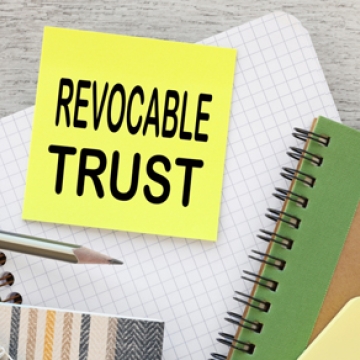Recent News & Blog / Estate Planning
Sharing your estate plan’s details with family has pros and cons
When it comes to estate planning, one important decision many people struggle with is whether to share the details of their plans with family members. There’s no one-size-fits-all answer; it largely depends on your goals and your family dynamics. Contact our estate planning advisors for more information.
Stepped-up basis rules can ease the income tax bite of an inheritance
The stepped-up basis rules can reduce capital gains tax for family members who inherit your assets. Under these rules, when your loved one inherits an asset, its tax basis is adjusted to its fair market value at the time of your death. However, these rules don’t apply to retirement assets such as 401(k) plans or IRAs. Contact our estate planning advisors for details.
Incentive trusts: Use them to pass your wealth and values on to beneficiaries
If your estate planning goals include distributing your wealth while also encouraging specific behaviors or achievements among your heirs, using an incentive trust might be right for your plan. Essentially, an incentive trust sets guidelines for how a beneficiary becomes eligible to benefit from the trust. Contact SEK's estate planning advisors for guidance.
What happens if you and your siblings inherit your parents’ home?
When estate planning, it’s common for parents to leave their primary residence or a vacation home to their children. Typically, you and your siblings will receive equal shares in the property. But what if you can’t agree on what to do with the home? Here are some considerations. Contact our estate planning advisors with questions.
It may be in your best interest to file a gift tax return
Generally, the IRS has three years to challenge the value of a transaction for gift tax purposes or to assert that a nongift was, in fact, a partial gift. But unless the transaction is adequately disclosed, the IRS can collect unpaid gift taxes (plus penalties and interest) years later. Filing a return creates a paper trail, reducing the risk of IRS disputes later. Contact the estate planning advisors and tax advisors at SEK for more information.
To file or not to file a gift tax return, that is the question
If you made substantial gifts of wealth to family members in 2024, you may have to file a gift tax return. The return is due by April 15 of the year after you make the gift, so the deadline for 2024 gifts is coming up soon. Contact the CPAs and tax advisors at SEK for more details.
Yes, you still need an estate plan even if you’re single, without children
There’s a common misconception that only married couples with children need estate plans. In fact, estate planning may be even more important for single people without children. Why? Because for married couples, the law makes certain assumptions about who should make financial or medical decisions on their behalf should they become incapacitated and who should inherit their property if they die. Contact the estate planning advisors at SEK with your questions.
Do you have the right amount of life insurance coverage?
Life insurance plays a vital role in your estate plan because its proceeds can provide for your family in the event of your untimely death. The amount of life insurance that’s right for you depends on you and your family's circumstances, so it’s critical to review your life insurance policy regularly. Contact our estate planning advisors for life insurance planning assistance.
A revocable trust can be a versatile tool in your estate plan
A revocable trust is a popular estate planning tool that allows you to manage your assets during your lifetime and ensure a smooth transfer of those assets to your family after your death. However, like any legal instrument, a revocable trust has certain disadvantages. Contact the estate planning advisors at SEK with questions.
Charitably inclined? Pair a donor-advised fund with your estate plan
Your estate plan is the perfect place to make charitable gifts if you’re charitably inclined. One option is to consider using is a donor-advised fund (DAF). It allows you to set aside funds for charitable giving while you’re alive, and you (or your heirs) can direct donations over time. Contact SEK's estate planning advisors for assistance.









